7 Signs It’s Time to Fire Your Editor
An author-editor relationship can be one of the most rewarding, collaborative partnerships you can have, and finding a good one is exceedingly beneficial to your success and growth as a writer.
Sadly, however, sometimes that relationship can turn sour (or even start off that way), and you might need to make the decision: Stay or go?
While it’s never easy, moving on is the smart choice if you find yourself in these specific situations. Here are 7 signs it’s time to fire your editor:
Your Editor Makes Too Many Mistakes
If your editor returns your manuscript either still full of mistakes or with new mistakes added, it might be time to fire them.
I say this with two huge caveats: First, a few errors here and there are within acceptable ranges for editor accuracy. (The rule of thumb for professional editors is a catch rate somewhere between 80 and 95 percent.) Second, you should make sure the “errors” that linger in your manuscript are, well, truly errors.
Many things some writers assume are errors (like spelling “alright” as “all right” or comma usage and placement) are actually style choices recommended by either The Chicago Manual of Style (the preferred style bible of the publishing industry) or the first-recommended variant in Merriam-Webster’s dictionary (the preferred dictionary of the publishing industry). Check first to see if your editor can give you a clear explanation of such style choices before you fire up the “this isn’t working out” letter.
If not, though, other than obvious misspellings or other cut-and-dried flubs, how will you know if what you see actually is a passel of misses? I mean, you don’t know what you don’t know, right? That’s why you hired an editor in the first place.
My advice: trust your gut, but verify it. If something niggles you, and you think it’s a mistake, it very well could be. And it’s perfectly okay to get a second opinion and/or verify your hunch on a sample. Reach out to another editor who does free sample edits and see what they do to a chapter. (I wouldn’t outright tell them you’re trying to check your original editor’s work, though.) Or, if that feels skeevy or like a huge hassle, run the m/s through a program like Grammarly or ProWritingAid and see what comes up (but, remember, those editing aids are often wrong themselves).
Your Editor’s Communication Is Slow or Poor
If your editor sets the expectation that they’ll communicate with you during your project with a certain amount of frequency, but then doesn’t, or if they don’t communicate with you at all, or they communicate very slowly—it might be time to fire them.
The same for poorly communicated instructions, rates, deliverables, timelines, due dates, etc., etc. Or if your editor comes across in his messages or discussions as condescending, dismissive, negative, insensitive, or anything else that doesn’t feel good to you.
Clear, direct communication and solid relationship building is key in an author-editor collaboration. If either of those are missing or poor, it’s time to let that editor go.
Your Editor’s Feedback Leaves You Feeling Too Upset
While it’s good to have a thick skin in order to receive and process criticism of your work, any feedback that feels particularly pointed, off the mark, or harsh should be a red flag that your editor isn’t right for you.
It might not be that the feedback is incorrect, but the way it’s delivered is wrong for what you need. That’s okay! The collaboration you have with your editor should help you grow as a writer, but it should do so in a way that feels safe to your psyche.
If reading your editor’s comments leaves you devastated more often than not, and you can’t find the value in anything they tell you about your work, you need to find a new editor.
Your Editor Gives You Too Little Feedback
Conversely, if your editor gives you hardly any feedback at all, especially for a developmental edit or a manuscript assessment, it could be time to part ways. (If you’ve hired them for a line or copyedit, that might be different. You could be just that good of a writer, and little to no corrections were necessary. Some line/copyeditors do leave comments on craft during an edit, but it shouldn’t be expected as part of the service.)
Check your letter of agreement or contract carefully, though—if it didn’t specifically include comments or a certain length for an editorial letter, you might have misunderstood what you were getting.
However, that might still mean you need more or something different from an editor collaboration. It’s okay to move on if you don’t get what you need, regardless of what you agreed to.
Your Editor Doesn’t “Get” You
If you feel misunderstood as a person or a writer—whatever that means to you—it might be time to fire your editor.
Perhaps your editor makes such deep corrections to your writing that it no longer sounds like you, or your particular style or a character’s dialogue is completely obliterated.
Perhaps they want you to make changes to your story that you know in your heart won’t work (it does happen).
Maybe your editor makes comments about your lifestyle or likes or dislikes that leave you wondering if she respects your work or you as a person.
Those could all be signs that you’re the wrong fit, and it’s time to move on.
Your Editor Never Has Time for Your Projects
If you can never seem to get your manuscript on your editor’s calendar in a way that fits your schedule, it might be time to fire her.
Make sure, however, that your schedule is realistic given the length of your book and the complexity of the edit. It’s not out of line to have to wait a couple of months if your editor is good at her job and in demand.
But if you’re consistently being told there’s no room for your project in the next six, nine, twelve months, then it’s time to find an editor who can fit you in sooner.
Your Editor’s Rates Increase Out of Your Budget
Inflation has hit us all, requiring many service providers (editors included) to raise their rates in order to keep up.
But if your editor’s prices have gone beyond what you can comfortably afford, it might be time to (reluctantly, I’m sure) let them go.
Before you move on, though, do your due diligence on how your editor’s rates line up with typical pricing across the industry to help you know what to expect when you search for a new one. You might be a bit shocked to find out what you’ve been charged is significantly below the going cost for the service you were getting, and the minimal amount added won’t make much difference, especially given the hassle of finding a replacement and bringing them up to speed.
***
So, what do you do if you find yourself noticing one of these 7 signs it’s time to fire your editor? The best course is to be direct, honest, and professional. Send your editor a polite message stating you don’t believe the fit is good anymore, and you’d like to end the business relationship.
That’s it.
Don’t go into huge detail about every mistake, or failure, or reason why your editor didn’t live up to your expectations. If they ask, state simply, using “I” language, that you need X, Y, and Z and feel you can get those needs met better elsewhere.
End of story.
(And if you get a nasty response to that professionalism, it will tell you all you need to know about the rightness of your decision.)
***
If you think it might be time to find a new editor, I can help—sensitively and professionally. Reach out here, or if you’d like a re-edit of one chapter of your previously edited book, I’m happy to help.




